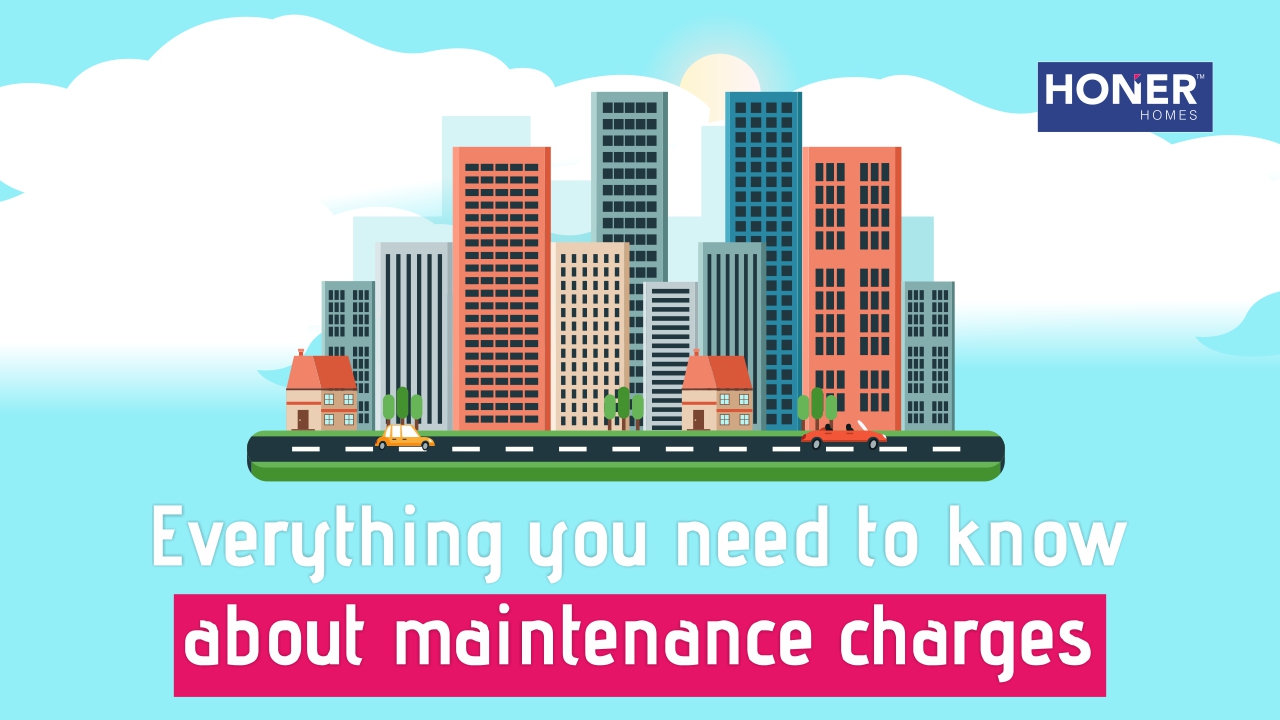Indian realty has always proved to be a lucrative investment for NRIs. But is it the right time now for NRIs to invest in the Indian real estate sector? Yes, it is! Various political and economic reforms like the depreciation of Indian currency and reduction in prices post demonetisation alongside major policy reforms, instilled transparency and greater consolidation in the realty sector have lured NRI customers to prefer investing in real estate over alternative asset classes like mutual funds, stocks, and FD among others.
For years now, the real estate sector in India has witnessed Non-Resident Indians as a significant segment of investors. The Indian Economy is currently witnessing an upward surge that will yield good rental over the years. This has drawn NRIs towards investing in commercial properties and luxury residential segment. As per a recent report, overseas investments have surged 137 per cent, from 5 billion US$ in 2014 to 10.2 billion US$ in 2018. According to a survey, nearly 63% of NRIs prefer investing in real estate in India over any other investment options. Also with the value of the Indian currency witnessing a significant low against the value of the US dollar; there is no better factor than rupee depreciation for the NRIs to invest in the Indian real estate sector.
FEMA rules set by the RBI for NRIs
To attract more foreign investment, the RBI has made simple rules for NRI investment: “An NRI or a person of Indian origin (PIO), as defined in FEMA, can acquire by way of purchase, any immovable property in India other than agricultural land/plantation property/farmhouse. This is under general permission that has been provided by the Government of India. However, no person with the citizenship of Pakistan, Bangladesh, Sri Lanka, Afghanistan, China, Iran, Nepal or Bhutan, shall acquire or transfer immovable property in India, other than lease, not exceeding five years, without prior permission of the Reserve Bank.
Where can NRIs invest?
NRI’s must first decide whether they are buying a property for end-use or simply for investment purposes.
When buying a property for end-use there are many options in the residential sector. The speculation-led investment activity has reduced significantly and hence the residential market is at a better place. In most metro cities where sales in residential realty segments have stagnated, prices have not increased. However, while the prices in most metropolitan cities have remained stable for the past few years, Hyderabad real estate sector has seen a steady price appreciation across the city.
Also, transparency in the market like the implementation of RERA and Benami Bill being passed by the Indian Government is making the real estate landscape of India very lucrative to the NRIs. Developers are offering customised solutions in the residential sector by building smart homes with an international appeal.
If the person is investing to yield a return on investment in the future, commercial property is the best choice. A good commercial property can give an average rental yield of 6-10% against the current residential property rental yield of 1.5-3.5%. Therefore a good capital appreciation and high rental yield have increased NRI demand for office spaces, logistic centres and REITs as well.
Real estate rules for NRIs
Financial transaction rules:
When it comes to property transactions in India, NRIs/ PIO can make payments out of
- Funds remitted to India through normal banking channel.
- Funds held in NRE/ FCNR (B) / NRO account maintained in India.
- No payment can be made either by traveller’s cheque or by foreign currency notes.
- No payment can be made outside India.
Loan eligibility for NRIs:
NRIs/POI are eligible for a home loan just like resident Indians. They can avail a loan for their property purchase up to 80% of the total property value in Indian rupees. The loan can be repaid in the following ways
- By way of inward remittance through normal banking channels.
- By debit to his NRE / FCNR (B) / NRO account.
- Out of rental income from such property.
- By the borrower’s close relatives, as defined in Section 6 of the Companies Act, 1956, through their account in India, by crediting the borrower’s loan account.”
Taxes for NRIs from real estate investment returns:
NRIs can earn returns from investment in real estate in the form of rental income. However, they need to watch out for certain rules when buying, selling or renting out a property.
While buying the property, NRIs need to deduct TDS at the rate of 1% of the property value, if the property’s value is above ₹50 lakh.
While selling the property, the buyer will deduct the TDS from the amount payable to the NRI and the NRI can transfer the amount outside India or to his/her NRE account after paying due taxes. TDS rate is 30% (short-term) or 20% (long-term) of the property value.
In the case of rental income, NRIs are taxed at the same rate of tax as applicable to a resident Indian. The highest rate of tax is 30% and surcharge shall be applicable based on the total income.
When the real estate industry in the rest of India is sluggish, the realty sector in Hyderabad has seen the bright light ever since the new state of Telangana has been formed. The overall market for property sales fell by 11% in the quarter ending in June, while in the same quarter, the property sales in Hyderabad has increased by 10%. Judging by the real estate scenario, it can, therefore, be considered a wise decision if NRIs can invest in the Hyderabad real estate sector. Looking at the stable real estate statistics, it seems apparent that in the FY 2020 as well, Hyderabad will continue to be one of the brightest spots in the Indian residential landscape backed by a rise in job opportunities and advancements in infrastructure. Many upcoming locations in the western and eastern corridors of the city will witness a steep rise in property prices, thereby further drawing end-user and investor interest, especially NRIs.
It is very important for NRIs to do their due diligence before investing in real estate. Checking the property title and the background of the builder is important before investing in an under-construction property.
Frequently Asked Questions
- How purchasing in newly launched residential property can help home seekers?
Answers: To gain traction of home seekers and create a buzz across the market, real estate developers often come up with Early Bird offer. With such offers, the home buyers often get discount on the base price. Some builders even eliminate the extra charge otherwise applied for floors and corner units for buyers who purchase during early launch phase.
- Who can consider buying the newly launched projects?
Answers: People who are buying their first home, or looking to upgrade their lifestyle with a bigger space and investors – all can consider buying the newly launched projects.
- What are the major advantages of investing in a newly launched property?
Answer: The major advantages of investing in a newly launched property are mentioned below –
- Purchasing newly launched properties will help you avoid the drastic price revisions.
- Real estate developers often provides Early Bird offers for customers who purchase the properties when they are at a nascent stage.
- Home seekers can choose their favourite project unit without any hassle or any extra price if they are booking early.
- The new real estate projects offer modern day amenities well-suited for the new generation. Purchasing newly launched projects help home buyers with an array of state of the art amenities ensuring an elevated lifestyle.
4. Can I buy property during pre launch program?
Answer: Yes, home seekers can purchase home during their pre-launch program.
- Should NRI’s invest in property in India now?
It is now the right time for NRIs to invest in the Indian real estate sector. Various political and economic reforms like the depreciation of Indian currency and reduction in prices post demonetisation alongside major policy reforms, instilled transparency and greater consolidation in the realty sector have lured NRI customers to prefer investing in real estate.
- Which is the best city in India to invest in realty for NRIs?
Hyderabad is the top city where NRIs are actively looking for a property investment in the past few years. While most metropolitan cities like Delhi NCR, Mumbai MMR, Bengaluru, house the highest coworking stock, but the real estate scenario in these cities are facing downward, while seems to be growing in the real estate sector impressively.
- What are the best investment options for NRIs in India?
Earning an income in US dollars gives you a lot of opportunities. And did you know that you can also invest your savings in India in the realty sector? This is one of the best investment options for the NRIs. The upward surge in the Indian Economy has drawn NRIs towards investing in commercial properties and luxury residential segment.
- Which sector is best for NRIs to invest in India?
NRIs always look for investment options in various sectors in India. Besides mutual funds, gold, equities and stock market, real estate is a preferred investment option. It is a reliable investment option that guarantees to fetch high returns in the future.
- Should NRIs look for property investment in India?
Asset classes like stocks, fixed deposits, gold and mutual funds are beneficial and holds a lot of risk at the same time. The best decision for an NRI would be to invest in real estate and earn regular income by letting it out on lease or rent. According to a survey, nearly 63% of NRIs prefer investing in real estate in India over any other investment options.














































Thanks! HonerHome, loved the post.
What arrangements do you have to get the documentation done right? NRIs being away from you face difficulties in understanding and making sure that all the documentation is correctly done. If we buy a apartment in Honer, how is the documentation take care?
If an NRI buys in Honer Homes, how do you help with documentation to make sure that we get the right documentation at the right time? With us being away, this part is challenging. Do you have any arrangements to make sure that the documentation is done right?
Dear Mr.Manoj Deshpande,
We have shared your details with our concerned person and they will get in touch with you soon and clarify your query.
Thanks & Regards
HONER HOMES TEAM